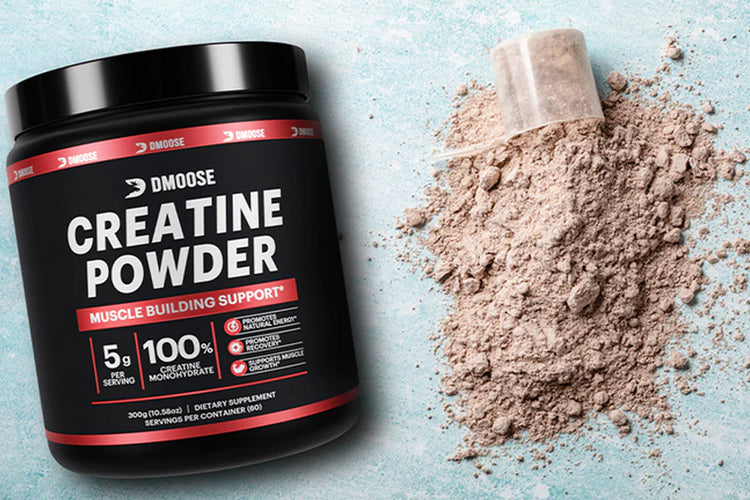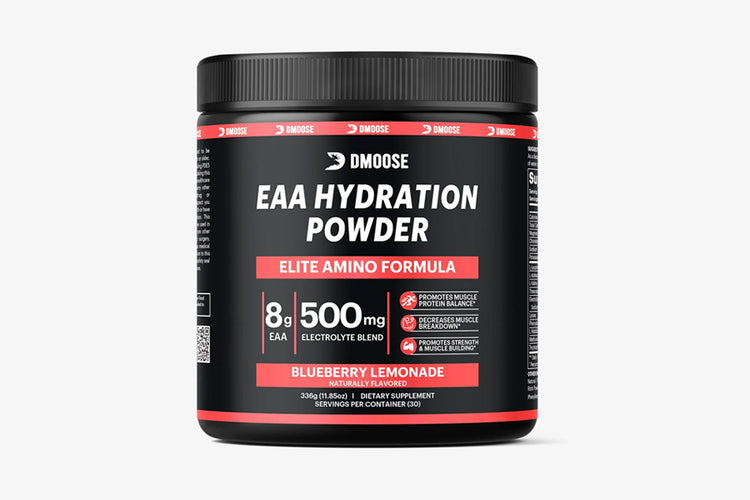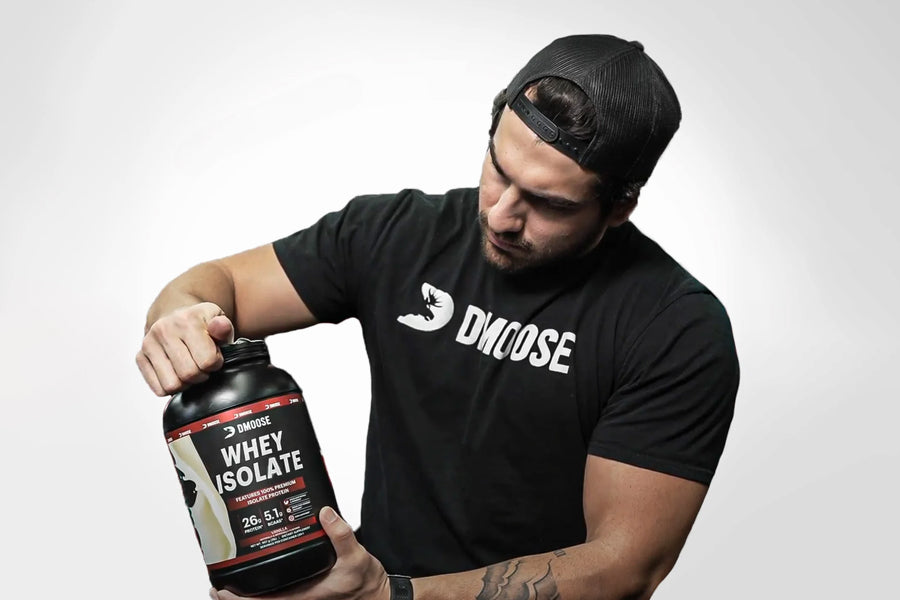Jenna had been hitting the gym regularly for months now, but despite her dedication, she felt like she wasn't seeing the results she wanted. She had been doing everything right - eating healthy, lifting weights, and even getting enough sleep. So why wasn't she getting the muscle gains she had hoped for?
After some research, Jenna stumbled upon the world of muscle-building supplements. She realized that despite all her efforts, she wasn't getting all the nutrients her body needed to build muscle effectively. With so many supplements on the market, she didn't know where to start.
That's when she came across an article on the "10 Most Useful Muscle-Building Supplements for Women". Jenna was intrigued and excited to learn more about how these supplements could help her achieve her fitness goals. She was eager to try them out and see the results for herself. With this newfound knowledge, Jenna was ready to take her muscle-building journey to the next level.
Muscle Building for Women
Muscle building is a huge challenge for women. Due to their low testosterone levels, women must work harder than men to build muscle. That being said, when we talk about muscles, we certainly do not refer to beefy bulky bodies, taking away all the attraction. Instead, we stress the importance of lean muscles that all women need to gain power and strength.
Building muscles and having proper nutrition can help build a toned physique that acts as no less than a fat-burning machine. This is because muscles help burn calories. This equates to an increased metabolic rate which accelerates weight loss.
However, if depending solely on nutrition and heavy weight lifting isn't cutting it, supplementation can act as a massive support. Muscle-building supplements are not just one of the most misconceived supplementations but are also super confusing for many. The flashy labels, sensationalized headlines, and misleading information on the internet have a huge role in this.
Contrary to popular belief, supplements are a powdered blend of nutrients directly contributing to muscle building. They do not work by increasing the size of your muscles but by inculcating power, leading to effective muscle build. Since women naturally have low muscle mass-building capabilities, supplements can take them an extra mile. They help:
- Rebuild muscles
- Improve energy and focus
- Enhance workout performance
- Speed up weight loss
- Improve cognition
If your fitness goals align with the benefits mentioned above, then it's time to make the necessary shift toward supplementation. Quit gravitating towards cardio machines and start powering yourself with the multi-ingredient formula. This article highlights the top 10 muscle-building supplements for women that can help them scale up:
1. Protein

Protein is an essential macronutrient that plays a crucial role in building and repairing muscles. It is essential for women who engage in regular physical activity and strength training to support muscle growth and recovery. The human body is made up of thousands of different proteins, and they are required for almost every bodily function, including the growth and repair of muscle tissue.
When it comes to muscle building, protein is especially important because it contains amino acids that are the building blocks of muscles. Consuming adequate protein is necessary to support muscle protein synthesis, which is the process by which new muscle tissue is created in response to training. According to research, consuming a high-quality protein source after exercise can significantly enhance muscle protein synthesis and promote muscle growth.
Moreover, protein can also help with weight management. It is well-known that protein has a higher thermic effect than other macronutrients, meaning the body burns more calories digesting and metabolizing protein than carbohydrates or fats. This can help increase overall energy expenditure and support weight loss efforts.
While getting enough protein through a balanced diet is possible, supplementing with protein powder can be a convenient and effective way to ensure that you meet your daily protein needs. Whey protein, in particular, has been shown to be highly effective in promoting muscle growth and recovery in women. It is a fast-digesting protein that the body can quickly absorb, making it an ideal post-workout option.
DMoose Whey Protein is a high-quality protein supplement that can help women build and maintain lean muscle mass. This supplement is made from pure whey protein isolate, which contains all the essential amino acids needed to support muscle growth and repair. DMoose Whey Protein is also low in calories and carbohydrates, making it an ideal option for women who want to increase their protein intake without consuming too many extra calories.
Additionally, the whey protein supplement is formulated to be easily digestible, which means it can be quickly absorbed by the body to deliver fast-acting results. With regular use of the whey protein powder by DMoose, women can support their fitness goals and achieve the lean, toned physique they desire.
If you are taking protein supplements to gain muscle, you might have been at a point where you wonder how much protein you should take per pound. In that case, taking 0.5-0.9 grams of protein per pound is recommended. Bill Campbell explains in his video why protein is important for physique enhancement.
In conclusion, protein is a crucial nutrient for muscle building and recovery in women. Incorporating protein-rich foods into your diet and supplementing with high-quality protein powders like whey protein can help support muscle growth, repair, and maintenance. So, if you want to build muscle and improve your overall fitness, prioritize protein in your diet and supplement regimen.
Related Article: 7 Benefits of Whey Protein Powder
2. Weight Gainers

Weight gainers are supplements that are specifically used to gain muscles. They help you gain calories therefore, they offer a perfect solution for people who find it tricky to gain muscle despite consuming many calories.
The high-calorie supplements provide 75-300 grams of carbs and 20-60 grams of protein per serving. However, it's important to note that weight gainer supplements are only recommended if you struggle to eat enough food and find it easier to fulfill your body's needs with drinks like shakes, etc.
3. Creatine

Creatine is a molecule naturally produced by our bodies, providing energy to our muscles. With dietary supplements, you can increase the energy supply to the muscles up to 40% beyond the ordinary levels.
Creatine supplements help elevate your exercise performance, which leads to muscle gain. Creatine Powder by DMoose is one of the best supplements to enhance your speed and energy. A significant amount of research has proven that creatine supplements can exhibit a drastic improvement in muscle strength.
Creatine helps increase the water content in your muscles, making them swell, thereby stimulating muscle building in the body. Research has also shown that creatine supplements can decrease protein breakdown. Consequently, you can witness an improvement in muscle building.
4. Beta-Alanine
This is one of the best muscle-building supplements for women. It reduces fatigue by buffering lactic acid, which directly impacts gym performance. Research showed that consuming 4 grams of beta-alanine for eight weeks can result in lean body mass in wrestlers. Another study mentioned that after taking this supplement, individuals following a six-week high-intensity interval training witnessed an increase in body mass by 1 pound.
This muscle-building supplement can act as great support for muscle gain. It manifests lean mass production by expanding the bloodstream and metabolism. DMoose Pre-Workout Powder with beta-alanine 2000 mg is a game-changer for women who want to build muscle. Beta-alanine is an amino acid that helps produce carnosine in the muscles. Carnosine, in turn, helps reduce fatigue and enhance performance during high-intensity exercise. With the inclusion of beta-alanine, DMoose pre-workout powder helps delay muscle fatigue, allowing you to push yourself harder during your workouts and get more out of your training sessions.
Not only does this pre-workout powder help improve your performance during your workout, but it can also help you build more muscle over time. When you work out, you create micro-tears in your muscle fibers.
Your body then repairs these tears, leading to muscle growth. By improving your performance during your workouts with beta-alanine, you can create more micro-tears in your muscles, resulting in more muscle growth over time.
5. Nitrates and Nitric Oxide Boosters
Nitrates and nitric oxide boosters have become increasingly popular among women looking to build muscle. These supplements work by increasing blood flow and oxygen delivery to the muscles, which can help improve endurance and performance during exercise.
When nitrate supplements are ingested, they are converted into nitric oxide, a gas that dilates blood vessels and increases blood flow. The improved blood circulation contributes to supplying more oxygen and nutrients to the muscles, thereby aiding in muscle recovery and growth.
Studies have also shown that nitrates and nitric oxide boosters can increase muscle protein production, which is important for building and repairing muscle tissue. Additionally, they have been shown to reduce muscle soreness and fatigue, allowing for quicker recovery times and more frequent workouts.
Overall, nitrates and nitric oxide boosters can be a beneficial addition to a woman's supplement regimen when trying to build muscle. By increasing blood flow and protein production, these supplements can help improve workout performance and aid in muscle recovery.
Related Article: A Study Says That Citrulline Supplementation Improves Blood Flow & Exercise Performance
6. Caffeine

Coffee or tea in the morning can keep you alert, but coffee alone will not cut it. Caffeine is a total game-changer when it comes to boosting focus and power. It does that by increasing dopamine and epinephrine levels in the brain. However, if you want to relish the benefits of caffeine, supplements can take you an extra mile.
Caffeine is a stimulant that helps to increase energy levels and improve focus during workouts. This can lead to greater intensity and effort during training, resulting in increased muscle mass over time. Pre-workout supplements can contain 100-400mg of caffeine or even more; however, the recommended dosage is between 50 mg to 300 mg, depending on your tolerance.
When incorporating caffeine into a muscle-building regimen, it is important to choose a quality supplement with a safe dosage of caffeine and other beneficial ingredients.
Caffeine can be useful for women looking to build muscle and improve their body composition. With the right dosage and proper supplementation, caffeine can help improve energy levels, focus, and metabolism for a more effective and efficient workout.
Related Article: The Science Behind Pre-Workout Supplements
7. Magnesium
Magnesium is a substantial mineral required by our body. However, most of us are naturally deficient in it. Research proves several important benefits of magnesium that you can relish with supplementation. Studies report magnesium to be highly advantageous in lowering blood pressure levels.
A review of 34 studies showed that people who consumed 340 mg of magnesium daily for three months saw a reduction in systolic blood pressure. It also plays a critical role in blood sugar management. Taking magnesium supplements can be helpful in insulin resistance and stabilizing blood sugar levels among type 2 diabetes patients. More importantly, studies have proved that magnesium supplements can be specifically effective for people performing high-intensity exercise as it increases the oxygenation to the muscles.
8. Adaptogens
Adaptogens are optimal supplements that assist females in achieving a toned body. Ashwagandha, Rhodiola Rosea, and cordyceps are common examples that help reduce fatigue and improve cognitive functioning. Once you're more alert and active during your workouts, you will feel an upscaling change in your workout performance.
Rhodiola Rosea can decrease lactate production, and reduce muscle damage and exertion. Cordyceps enhances exercise performance by increasing lactate threshold, while ashwagandha increases muscle mass.
DMoose Adaptogen Supplement is designed for women looking to build muscle and improve their overall health and wellness. This supplement contains a blend of adaptogenic herbs, including ashwagandha and Rhodiola, which have been shown to help reduce stress and improve endurance during exercise.
One of the main benefits of adaptogens like those found in Dmoose Adaptogen is that they can help the body adapt to physical stressors, such as intense exercise, more effectively. This can help reduce fatigue and improve recovery time, allowing you to train harder and more frequently. Another benefit of Dmoose Adaptogen is that it can help to balance hormone levels in the body, which is particularly important for women looking to build muscle. Hormonal imbalances can make it more challenging to build muscle and lead to other health problems.
By using adaptogens to balance hormone levels, women can improve their overall health and make it easier to achieve their fitness goals.
9. BCAAs

BCAAs (branched-chain amino acids) are popular bodybuilding supplements for women. These consist of three amino acids - leucine, isoleucine, and valine. BCAAs are important for growing muscles as they make up for 14% of the amino acids in the muscles.
BCAAs can increase muscle mass or recede muscle loss compared to placebo. This supplement is said to be only likely to work if you're taking an inadequate protein diet. It increases the rebuilding, repairing, and synthesizing of new muscle tissues, fueling the muscles.
If you are a serious athlete looking to speed up muscle building, then Essential Amino Acids by DMoose can be what you are looking for. It maximizes recovery time, repairs damaged tissues, and prevents muscle breakdown from helping you perform at your peak.
10. HMB
HMB is short for Beta-hydroxy beta-methyl butyrate. The body naturally produces this molecule when it breaks down the amino acid leucine required for muscle repair and synthesis. It is vital for decreasing the breaking down of muscle proteins.
While naturally produced HMB in the body has several benefits for your muscles, it is produced in tiny amounts. Therefore, taking it as a supplement can take the advantages up a notch. Studies suggest that HMB supplements can aid muscle growth, improve adaptations to exercise, significantly reduce muscle impairment, and diminish inflammatory markers.
Several studies have shown that untrained individuals taking 3-6 grams of HMB daily regained the lean body mass. If you are a beginner getting started with exercise and want to increase the intensity, this supplement can prove critical in your performance.
Final Words
Muscle building can be challenging for women due to low testosterone levels; however, they can build lean muscle mass with the right supplementation. Muscle-building supplements can boost energy, enhance workout performance, and improve cognitive functioning. Supplements such as protein, creatine, BCAAs, magnesium, etc., can help you attain your fitness goals more efficiently and effectively.
Reading List
Article Sources
- Phillips, Stuart M., et al. "Dietary Protein to Support Anabolism with Resistance Exercise in Young Men." Journal of the American College of Nutrition, vol. 24, no. 2, Apr. 2005, pp. 134S-139S. PubMed, https://doi.org/10.1080/07315724.2005.10719454.
- Kerksick, Chad M., et al. "The Effects of Protein and Amino Acid Supplementation on Performance and Training Adaptations during Ten Weeks of Resistance Training." Journal of Strength and Conditioning Research, vol. 20, no. 3, Aug. 2006, pp. 643-53. PubMed, https://doi.org/10.1519/R-17695.1.
- Lemon, P. W. "Do Athletes Need More Dietary Protein and Amino Acids?" International Journal of Sport Nutrition, vol. 5 Suppl, June 1995, pp. S39-61. PubMed, https://doi.org/10.1123/ijsn.5.s1.s39.
- Spillane, Mike, and Darryn S. Willoughby. "Daily Overfeeding from Protein and/or Carbohydrate Supplementation for Eight Weeks in Conjunction with Resistance Training Does Not Improve Body Composition and Muscle Strength or Increase Markers Indicative of Muscle Protein Synthesis and Myogenesis in Resistance-Trained Males." Journal of Sports Science & Medicine, vol. 15, no. 1, Mar. 2016, pp. 17-25.
- Bray, George A., et al. "Effect of Dietary Protein Content on Weight Gain, Energy Expenditure, and Body Composition during Overeating: A Randomized Controlled Trial." JAMA, vol. 307, no. 1, Jan. 2012, pp. 47-55. PubMed, https://doi.org/10.1001/jama.2011.1918,
- Watt, Kenneth K. O., et al. "Skeletal Muscle Total Creatine Content and Creatine Transporter Gene Expression in Vegetarians Prior to and Following Creatine Supplementation." International Journal of Sport Nutrition and Exercise Metabolism, vol. 14, no. 5, Oct. 2004, pp. 517-31. PubMed, https://doi.org/10.1123/ijsnem.14.5.517.
- Lanhers, Charlotte, et al. "Creatine Supplementation and Upper Limb Strength Performance: A Systematic Review and Meta-Analysis." Sports Medicine (Auckland, N.Z.), vol. 47, no. 1, Jan. 2017, pp. 163-73. PubMed, https://doi.org/10.1007/s40279-016-0571-4.
- Parise, G., et al. "Effects of Acute Creatine Monohydrate Supplementation on Leucine Kinetics and Mixed-Muscle Protein Synthesis." Journal of Applied Physiology (Bethesda, Md.: 1985), vol. 91, no. 3, Sept. 2001, pp. 1041-47. PubMed, https://doi.org/10.1152/jappl.2001.91.3.1041.
- Trexler, Eric T., et al. "International Society of Sports Nutrition Position Stand: Beta-Alanine." Journal of the International Society of Sports Nutrition, vol. 12, July 2015, p. 30. PubMed Central, https://doi.org/10.1186/s12970-015-0090-y.
- Kern, Ben D., and Tracey L. Robinson. "Effects of β-Alanine Supplementation on Performance and Body Composition in Collegiate Wrestlers and Football Players." Journal of Strength and Conditioning Research, vol. 25, no. 7, July 2011, pp. 1804-15. PubMed, https://doi.org/10.1519/JSC.0b013e3181e741cf.
- Smith, Abbie E., et al. "Effects of Beta-Alanine Supplementation and High-Intensity Interval Training on Endurance Performance and Body Composition in Men; a Double-Blind Trial." Journal of the International Society of Sports Nutrition, vol. 6, Feb. 2009, p. 5. PubMed, https://doi.org/10.1186/1550-2783-6-5
- Lewis, Paul B., et al. "Muscle Soreness and Delayed-Onset Muscle Soreness." Clinics in Sports Medicine, vol. 31, no. 2, Apr. 2012, pp. 255-62. PubMed, https://doi.org/10.1016/j.csm.2011.09.009.
- Astrup, A., et al. "Caffeine: A Double-Blind, Placebo-Controlled Study of Its Thermogenic, Metabolic, and Cardiovascular Effects in Healthy Volunteers." The American Journal of Clinical Nutrition, vol. 51, no. 5, May 1990, pp. 759-67. PubMed, https://doi.org/10.1093/ajcn/51.5.759.
- Romani, Andrea M. P. "Beneficial Role of Mg2+ in Prevention and Treatment of Hypertension." International Journal of Hypertension, vol. 2018, June 2018, p. 9013721. PubMed Central, https://doi.org/10.1155/2018/9013721.
- Zhang, Xi, et al. "Effects of Magnesium Supplementation on Blood Pressure: A Meta-Analysis of Randomized Double-Blind Placebo-Controlled Trials." Hypertension (Dallas, Tex.: 1979), vol. 68, no. 2,
- Gröber, Uwe, et al. "Magnesium in Prevention and Therapy." Nutrients, vol. 7, no. 9, Sept. 2015, pp. 8199-226. PubMed, https://doi.org/10.3390/nu7095388.
- Golf, S. W., et al. "On the Significance of Magnesium in Extreme Physical Stress." Cardiovascular Drugs and Therapy, vol. 12 Suppl 2, Sept. 1998, pp. 197-202. PubMed, https://doi.org/10.1023/a:1007708918683.
- Panossian, Alexander. "Understanding Adaptogenic Activity: Specificity of the Pharmacological Action of Adaptogens and Other Phytochemicals." Annals of the New York Academy of Sciences, vol. 1401, no. 1, Aug. 2017, pp. 49-64. PubMed, https://doi.org/10.1111/nyas.13399.
- Parisi, A., et al. "Effects of Chronic Rhodiola Rosea Supplementation on Sport Performance and Antioxidant Capacity in Trained Male: Preliminary Results." The Journal of Sports Medicine and Physical Fitness, vol. 50, no. 1, Mar. 2010, pp. 57-63.
- Chen, Steve, et al. "Effect of Cs-4 (Cordyceps Sinensis) on Exercise Performance in Healthy Older Subjects: A Double-Blind, Placebo-Controlled Trial." Journal of Alternative and Complementary Medicine (New York, N.Y.), vol. 16, no. 5, May 2010, pp. 585-90. PubMed, https://doi.org/10.1089/acm.2009.0226.
- Wankhede, Sachin, et al. "Examining the Effect of Withania Somnifera Supplementation on Muscle Strength and Recovery: A Randomized Controlled Trial." Journal of the International Society of Sports Nutrition, vol. 12, 2015, p. 43. PubMed, https://doi.org/10.1186/s12970-015-0104-9.
- Blomstrand, Eva, et al. "Branched-Chain Amino Acids Activate Key Enzymes in Protein Synthesis after Physical Exercise." The Journal of Nutrition, vol. 136, no. 1 Suppl, Jan. 2006, pp. 269S-73S. PubMed, https://doi.org/10.1093/jn/136.1.269S.
- Gallagher, P. M., et al. "Beta-Hydroxy-Beta-Methylbutyrate Ingestion, Part I: Effects on Strength and Fat Free Mass." Medicine and Science in Sports and Exercise, vol. 32, no. 12, Dec. 2000, pp. 2109-15. PubMed, https://doi.org/10.1097/00005768-200012000-00022.
- Nissen, S., et al. "Effect of Leucine Metabolite Beta-Hydroxy-Beta-Methylbutyrate on Muscle Metabolism during Resistance-Exercise Training." Journal of Applied Physiology (Bethesda, Md.: 1985), vol. 81, no. 5, Nov. 1996, pp. 2095-104. PubMed, https://doi.org/10.1152/jappl.1996.81.5.2095.
- Durkalec-Michalski, Krzysztof, et al. "The Effect of a 12-Week Beta-Hydroxy-Beta-Methylbutyrate (HMB) Supplementation on Highly-Trained Combat Sports Athletes: A Randomised, Double-Blind, Placebo-Controlled Crossover Study." Nutrients, vol. 9, no. 7, July 2017, p. E753. PubMed, https://doi.org/10.3390/nu9070753.
- Silva, Vagner R., et al. "β-Hydroxy-β-Methylbutyrate Free Acid Supplementation May Improve Recovery and Muscle Adaptations after Resistance Training: A Systematic Review." Nutrition Research (New York, N.Y.), vol. 45, Sept. 2017, pp. 1-9. PubMed, https://doi.org/10.1016/j.nutres.2017.07.008.
- Hoffman, Jay R., et al. "β-Hydroxy-β-Methylbutyrate Attenuates Cytokine Response during Sustained Military Training." Nutrition Research (New York, N.Y.), vol. 36, no. 6, June 2016, pp. 553-63. PubMed, https://doi.org/10.1016/j.nutres.2016.02.006.











